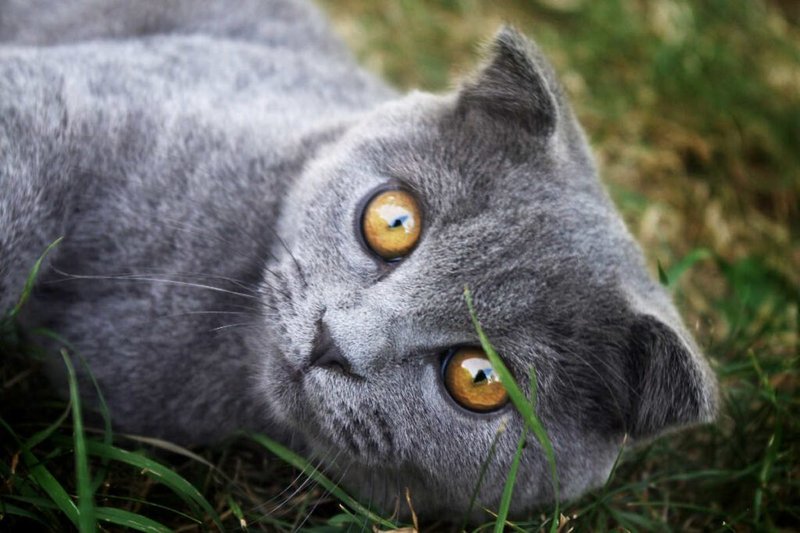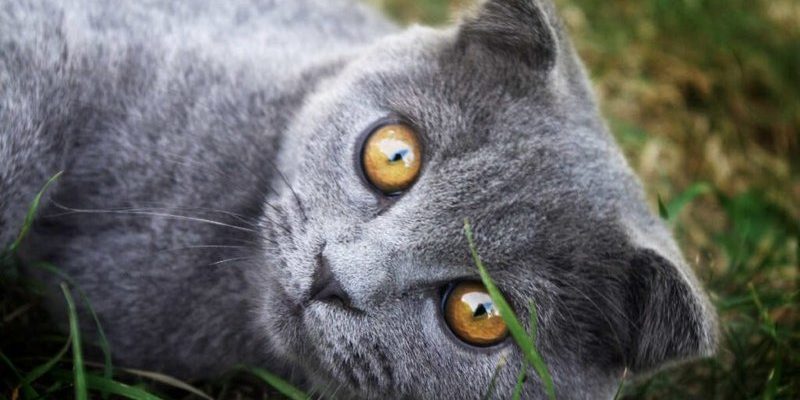
Now, think of the British Shorthair as the cozy sweater you pull on during the chillier months. They’re comforting and lovable but come with their own quirks and care needs. Just like some sweaters don’t fit everyone, not every cat will fit comfortably into your life. So let’s explore what makes the British Shorthair special—and what you should keep in mind before bringing one into your home.
Understanding the British Shorthair Breed
The British Shorthair is a breed that boasts a rich history. Originating in the UK, these cats were originally street cats, known for their robust health and strong bodies. They have a distinctive look, characterized by a stocky build, wide face, and large, round eyes. It’s easy to fall in love with their plush, dense coat, which comes in various colors, but the charm of a British Shorthair goes beyond just appearances.
Their temperament plays a huge role in their popularity. British Shorthairs are known for being laid-back and easygoing. They typically enjoy a quiet environment and can be quite independent, making them great companions for people with busy lives. Think of them as the “cool cats” that hang out, quietly observing the world around them without being overly demanding of attention.
However, like any breed, they do have their quirks! You might find them to be a little more aloof compared to other breeds, and while they are friendly, they aren’t usually the type to follow you around the house. This can be a plus or a minus, depending on your expectations with a feline friend.
The Pros of Owning a British Shorthair
One of the biggest perks of having a British Shorthair is their calm demeanor. These cats are generally very adaptable, which means they can settle in well to different households—be it a busy family or a quiet single-person home. They often do well with children and can enjoy the company of other pets, too. Their easygoing nature can make them a perfect fit for first-time cat owners.
Another advantage is their low-maintenance grooming needs. While British Shorthairs do have thick fur, they shed less compared to other long-haired breeds. A simple weekly brushing usually keeps their coat looking shiny and healthy. This can save you time and energy, especially if you’re not ready to commit to frequent grooming sessions.
Health-wise, British Shorthairs are generally robust. With proper care, they can live into their late teens. Regular vet check-ups, a balanced diet, and enough exercise can contribute to a long and healthy life. Plus, their sturdy build tends to make them less prone to some common feline health issues.
The Cons of Owning a British Shorthair
While there are many advantages, there are also some downsides to think about. One thing to consider is their sometimes aloof behavior. British Shorthairs are not known for being lap cats. They enjoy being around you, but they’re more likely to curl up nearby than snuggle in your lap. If you’re looking for a cat that craves constant companionship, this breed might not tick all your boxes.
Another thing to keep in mind is their potential for weight gain. They love to eat (who doesn’t?), and if their diet isn’t monitored, they can become overweight. Regular exercise is crucial to keep them fit. Interactive playtime is a must, so think about how you’ll incorporate that into your daily routine.
Finally, be prepared for a bit of a learning curve when it comes to their personality. British Shorthairs are quite intelligent, but they can also be stubborn. If you’re trying to train them or introduce new habits, patience will be key.
Caring for Your British Shorthair
Proper care is essential for keeping your British Shorthair happy and healthy. Their diet should be balanced and tailored to their age and activity level. High-quality cat food that meets their nutritional needs is important. Since they tend to enjoy their meals, be mindful of portion sizes to avoid overfeeding.
Regular vet visits are also a must. They’ll help catch any potential health issues early and keep vaccinations up to date. It’s also a good idea to discuss dental care with your vet since dental issues can be common in cats.
Physical activity should be a priority, too. Whether it’s a feather toy or a laser pointer, find ways to engage your cat in play. Setting aside dedicated time for play helps keep them active and mentally stimulated. You can also create a cozy spot by a window where they can watch the outside world—a little cat TV never hurts!
Making the Decision: Is a British Shorthair Right for You?
Now that you’ve explored the pros and cons, you might be wondering if a British Shorthair fits your lifestyle. If you appreciate a low-maintenance, affectionate yet independent companion, this breed could be a great match. They’re perfect for people who enjoy a calm atmosphere and aren’t necessarily looking for a cat that demands constant attention.
However, if you’re someone who wants a snugly lap cat or you have a very active household, you may want to think about other breeds. Every cat has its own personality, and just like people, they have their unique quirks.
Take your time making this decision. Spend time with British Shorthairs if possible, or talk to breeders and owners. Understanding their behavior and needs can help you decide if this breed aligns with your expectations.
In summary, British Shorthair cats can make wonderful pets for the right owner. Their easygoing nature, low grooming needs, and overall health make them appealing choices. Yet, their independent demeanor and potential for weight gain require thoughtful consideration.
Before deciding to bring one of these fluffy companions into your home, weigh the pros and cons carefully. Ask yourself what you want from a cat and how much time and energy you can commit to their care. With this knowledge in hand, you’ll be better prepared to make a choice that benefits both you and your future feline friend.

